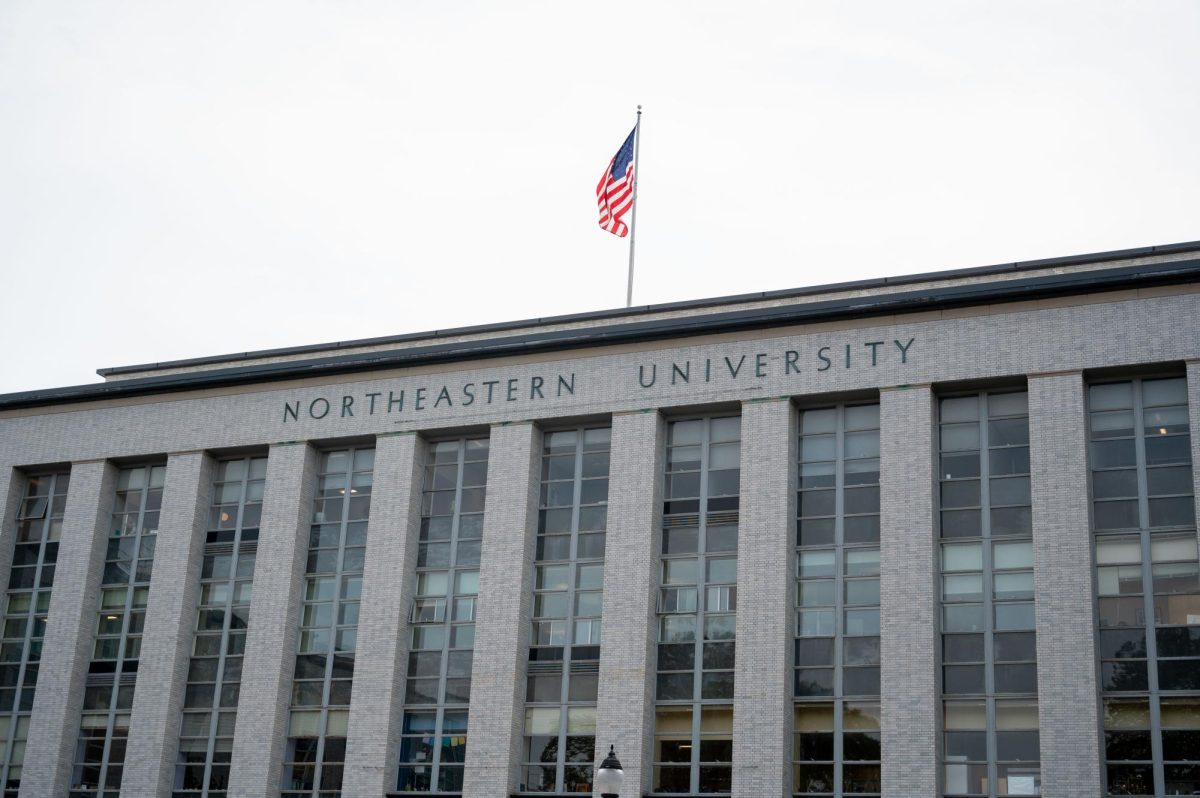
“A fast-talking, terse former negotiator, Joseph Wilson sat straight in his chair, offering no sign of fatigue from months of questioning and what he called “tawdry political tricks.”
Asked about the same topic he has entertained for months – the unveiling of his wife’s once-covert spy status by syndicated columnist Robert Novak – he gave a scowl as if to rev his rhetorical engine and spit an answer with lightning pace.
“What this is all about is the 16 words in the [2003] State of the Union Address, but the lackeys in the administration have managed to divert the attention from those 16 words and onto my family,” he said, taking no breaths over the course of a minute. “The real issue is the level of threat we faced from Iraq at the time we went to war. I would prefer to be in that debate, seeing as how I have something to offer. Unfortunately, most people want to know what it’s like to be Valerie Plame’s husband – which I’m also happy to talk about.”
In a talk sponsored by the Northeastern College Democrats at Blackman Auditorium Nov. 21, Wilson laid out the story of how he had gone from being a relatively anonymous state department official to “Valerie Plame’s husband,” sparing few from potent verbal attacks along the way.
Over 90 minutes, the rhetorical engine never slowed down. He was able to provide the audience with most of his career history, his position on both Iraq wars, a full account of the trip to Niger he called the reason for his character assassination and, as a “side issue,” his reaction to the outing of his wife’s identity as a spy with the CIA.
Wilson, a former ambassador to several African nations and to Baghdad during the 1991 Gulf War, described his position on the current Iraq War as a complete “180” from what he called his “hawkish” position in 1991.
“It was clear to me in 2002 that there was a group of people advocating for war who didn’t understand what would happen if we invaded [Iraq],” he said. “Those of us who had some experience could see that the risks far outweighed the positives.”
He said his experience meeting with Saddam Hussein just before the United Nations attacked Iraqi forces invading Kuwait in 1991 and helping spur democracy in Niger helped him come to the conclusion democracy was too difficult a road to pursue in Iraq.
“To me, it looked like regime change for the sake of regime change. It was a much harder road than [the Bush administration] thought it would be,” he said. “Was there anyone who knew better than me? Probably not.”
He referred to the Iraqis as “assholes,” and Saddam Hussein as a “madman.”
He added he received support for this view from former President George H.W. Bush and former National Security Adviser Brent Scowcroft.
After he began to publicize his views, he said other pro-war policy makers engaged in character denigration, setting the backdrop by which he claimed his wife’s identity was revealed. He said he was accused of being racist, among other charges, during the debate.
He also described the trip to Niger, in which he had found no evidence of the uranium sales President Bush accused Iraq of attempting to acquire for nuclear weapons. The trip was the topic of an op-ed he wrote in the New York Times discrediting Bush’s speech, and led to the revelation of his wife’s identity, Wilson said.
“I did what most citizens would do – I held my government to account,” he said of the op-ed. “I looked at the industry, which I already knew very well, and I looked at other places where the uranium may have been concealed. There was nothing to allege that Iraq attempted to buy uranium. The documents provided to the U.S. were forgeries, and the story was spinning out of control.”
Though he said it was a “side issue,” Wilson did not hold back judgment regarding the outing of his wife’s covert identity.
“My wife was the first American spy to have her identity compromised by the American government,” he said.
He also had harsh words for Novak, calling him an “asshole” and a “jerk.”
“When I found out [about the unveiling], I was on the second floor of my house,” he said. “If Bob Novak had been in the room, he wouldn’t have been on the second floor for long.”
Despite the theatrics, though, Wilson said there was a larger lesson from his ordeal.
“You will not keep this republic unless you are vigilant in its defense,” he said. “Insist on debate, and insist that the debate be based on the facts.”
That message resonated with MJ Paradiso, a freshman international business major in attendance.
“I was impressed not only with the way he spoke about his personal story, but also his broader message about standing up for what you think is right,” he said.
Other students in attendance, though, were not as impressed. Middler English major Christopher Budnick said the event was a “waste of time,” citing “skewed statistics.”
“He led with a really interesting statistic, that Valerie Wilson-Plame was the first American spy to have her identity revealed by her own government,” Budnick said. “It would be a bit more thrilling if she was, indeed, the first, but talking to a room full of college students can really invigorate you into saying what sounds good.”









